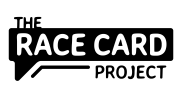 Z Frohna,
Z Frohna,
Los Angeles, CA.
So. I’m a white woman who lives in L.A. But I’m also disabled, and a part of the LGBT+ community. Am I privileged? Yes.
If someone has privilege, whether it is the dreaded white privilege or economically fueled privilege, it doesn’t mean, “they are a terrible person,” or, “their life isn’t hard at all and they deserve no pity.” Privilege simply means, the person has it easier in one way or another. I feel like we all have a bit of privilege in some way – but that’s okay! We can all use our advantages to help each other out, as friends and neighbors.
I made this “Privilege Guide” for my fellow white-and-relatively-affluent people, but anyone can read and learn. It’s kinda longer than you might be expecting if you’ve read other race cards.
HOW TO: Use Your Privilege For Good
One: Don’t presume someone needs your “help,” or pity, but always be ready to be a supportive friend.
I’m disabled. I know how it feels to be silently judged – often, strangers will react to meeting me with fear or confusion. They really just don’t want to deal with me, so they won’t talk to me or about me. I have lots of great friends, who aren’t this way, but I’ve definitely seen my fair share of discomfort from people. So I SORT OF get the whole “I am a minority” feeling.
And what I can tell you from my experiences, is, you help by listening, and whispering while the others who are closer to the problem are shouting. You can feel passionate about an issue that’s not directly related to you, of course, the more fighting the merrier, but take turns on center stage. Being a friend to a disabled person, or a black person, or a nonbinary person, or someone who’s all three, is just like being a friend to anyone else – in that there’s mutual appreciation, and you guys don’t steal each other’s thunder.
You do not help someone by taking their issue and shouting about it from the rooftops. Because then people pay attention to you, and credit the progress to you, even though you may simply be echoing less-noted others’ ideas. If this happens to you by accident, if you’re protesting with a strong group, and suddenly, you get your 15 seconds of fame – raise the others in the group or movement up with you.
The real difference between “help” and real help – one feels an awful lot like you’re the star of a show, with a cast that’s diverse for diversity’s sake. The other feels more like you’re helping to help, because you really believe in solving the problem, not attributing credit to the “hero.”
Two: Be nice.
There are lots of reasons and actual, fact-filled explanations for why you shouldn’t say the n word, the f word (the GAY f word, you know the one), or mock the accents of Chinese people. There are definitely more examples of things you shouldn’t do, but I’ll start with these – many people will fill you in on the reasons for not being callous like that, but I’m not going to. Google is free (but make sure you verify your sources!).
Instead, I’m going to ask – why do you NEED filling in? Who cares what the etymology of a word? A person, an individual with feelings, asked you not to say that word or do that thing. So don’t. Think about, if it weren’t part of a “liberal” or “conservative” issue. (I don’t really believe in parties.) What type of person do you consider standard, or normal? Picture them asking you not to say a certain word, or make a certain joke, because it hurts their feelings. Depending on what it is, you might think it’s not that bad. But you’ll listen, because you’re a good person.
Where does that stop? With people of Mexican heritage? Autistic people? Gay people? Where do you draw the “being nice” line? Where do you start asking, “why do I need to be nice?”
Three: Do your best to learn as much as you can about the advantages you benefit from.
If you’re white, learn about gentrification, the differences between cultural appreciation and appropriation, the history of the U.S; the utter destruction on our part of Native American society, the enslavement of black people, all that jazz.
If you’re middle class or higher, learn what you can do for people in poverty,
and find out actual effective-over-time solutions to homelessness.
Learn, so you can find solutions.
ZMKF 6/1/18
P.S. My blog used to be www.earthcompromise.com – don’t go there, I let it expire because I’m moving to Squarespace. My new website isn’t up yet, but it’s going to be www.zmkf.com and I’ll notify you guys in the comments of this race card when it’s up.







